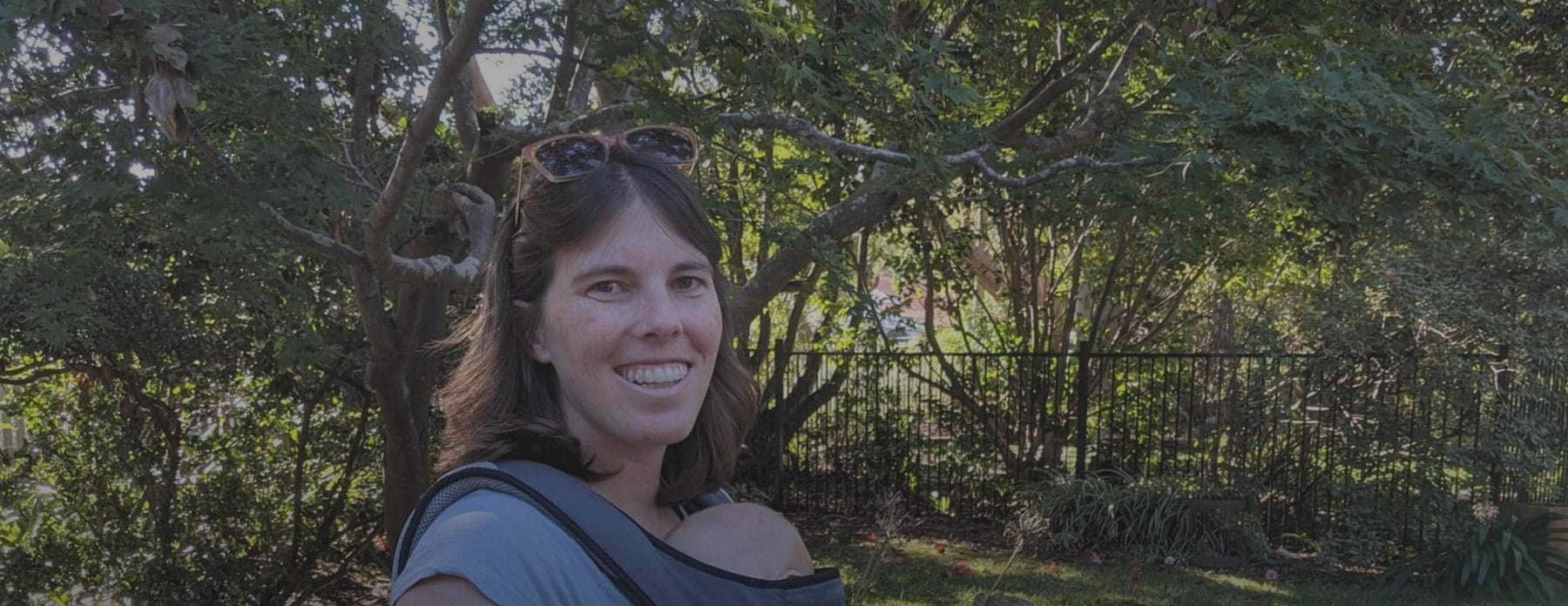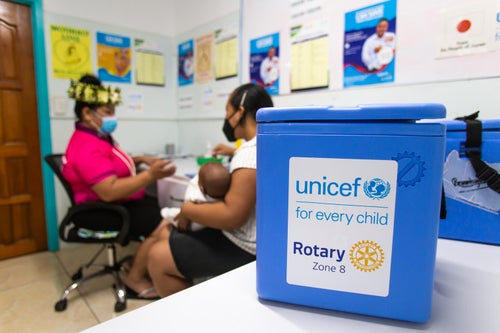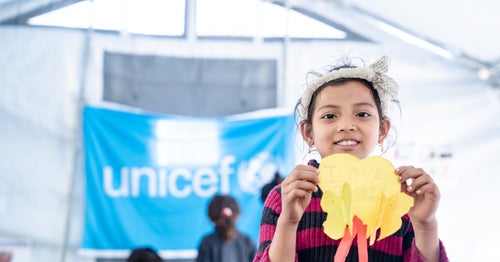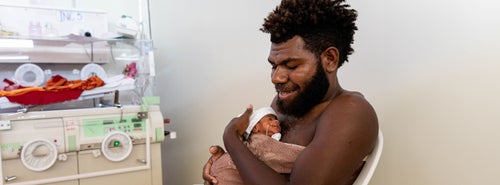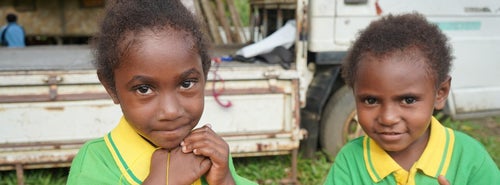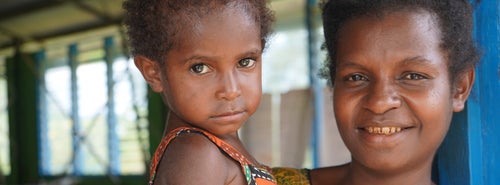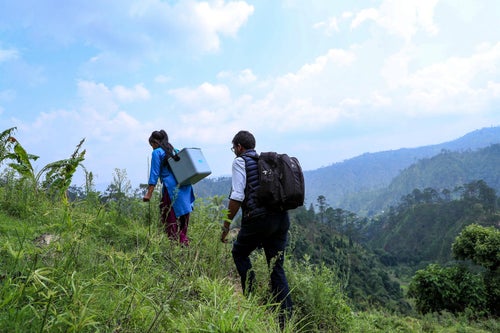Sometimes it’s the small things that, on reflection, can actually be quite monumental. Recently my newborn, William, reached an important milestone that many mums take for granted - his six week vaccinations.
It was astoundingly easy. We booked his appointment online, drove five minutes to our GP where we waited only 15 minutes. Our appointment was in a private room and after being weighed and measured, the GP gave him an oral vaccine and two little jabs in his legs.
He cried a bit, I gave him a cuddle and it was all over. This routine vaccination is the first step to protect him against a host of illnesses which, in the wrong circumstances, could kill him.
But it’s a very different story for many mums around the work, including Lize in Timor-Leste. What for me was an easy five minute car ride to a pre-booked appointment at a dedicated health centre is an entire day’s journey for Lize.
It’s an eight hour round trip to her closest health centre where she takes her six children for check-ups and vaccinations. Lize lives less than two hours by plane from the nearest Australian city, but the access she and I have to essential health care is worlds apart.
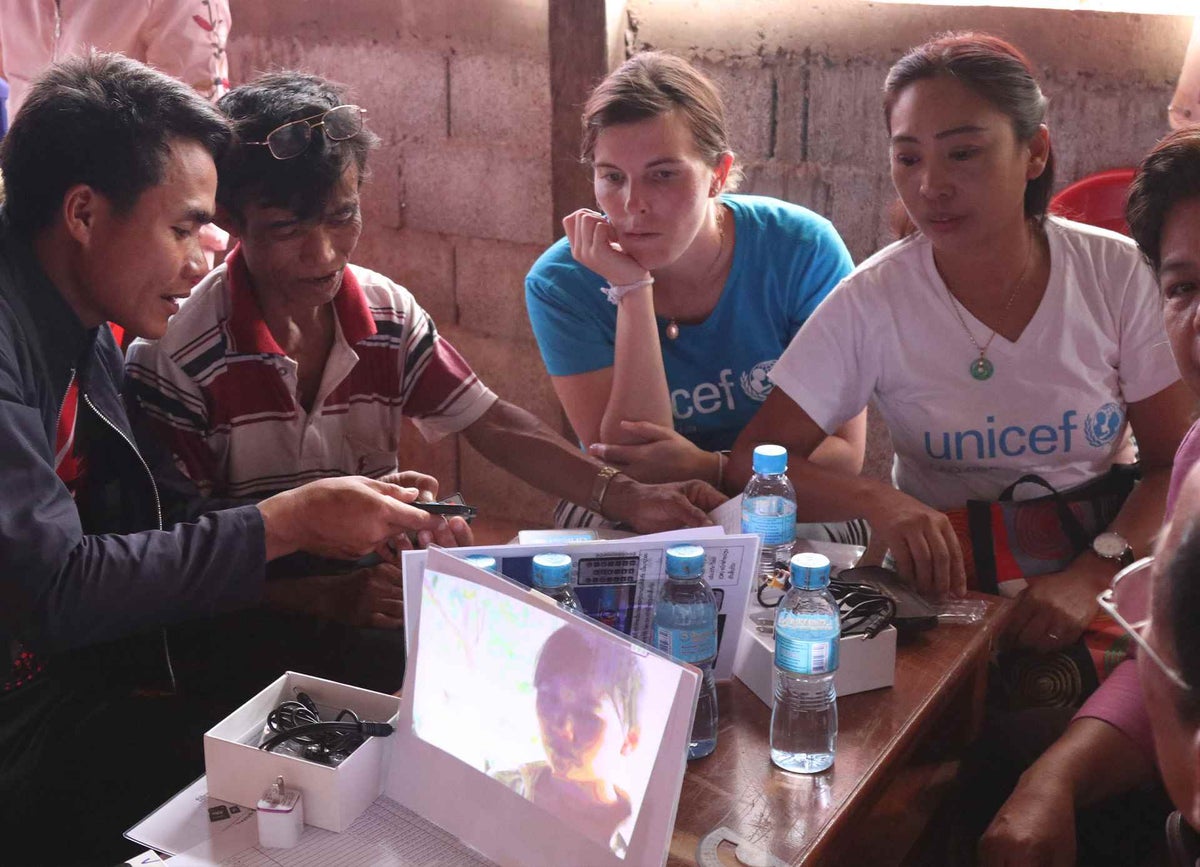
I have travelled to many countries as part of my work with UNICEF Australia, so I have seen firsthand how mothers like Lize are not alone in the lengths they will go to vaccinate their children. From Zimbabwe to Papua New Guinea, mums face incredible challenges to ensure their little ones are afforded the same protection as we have here.
In rural PNG, I met health workers who walk for two days through dense rainforest and mountainous terrain to reach remote villages. In the Pacific I travelled on a small boat with UNICEF teams transporting vaccines to reach the most isolated of islands, and in Laos I sat with parents as they waited hours in the heat to be seen.
"Every child deserves to get their jabs, have a cuddle with mum or dad, and travel home safely."
For some parents, the journey is simply too difficult. In Laos, poor access means that 37 per cent of children miss out on their second dose of the measles vaccine, drastically reducing their protection against this dangerous disease.
It is these experiences that make me particularly grateful for my effortless and uncomplicated five-minute drive with William, and all the more inspired at how far UNICEF will travel for children.
In Timor-Leste, UNICEF teams are working with health workers to support mothers like Lize by improving the quality of care, opening the health centres for longer hours, and ensuring that there is clean water when they get there. Why clean water? Because this is essential to make sure that mothers receive the care they need when they’ve travelled such long distances to get there.
“They’re kind and gentle and never rude,”, Lize says of the health workers who have received UNICEF-supported training. “They always explain the medicines and dosages clearly.”
Around the world, my colleagues at UNICEF work with local health workers, governments and partners to address challenges and ensure every child receives the life-saving vaccines we often take for granted. Every second child born this year will be vaccinated thanks to UNICEF.
Often known as an organisation that provides humanitarian aid following an emergency, UNICEF is so much more. Our teams are there for the long haul, working to protect children all around the world and give them the best start in life.
UNICEF trains health workers in how to safely administer vaccines and document the process so parents and the health system has a record of who has been protected. They help frontline workers plan and run regular health outreach days so that every community can access timely health care, no matter how far they are from a health centre.
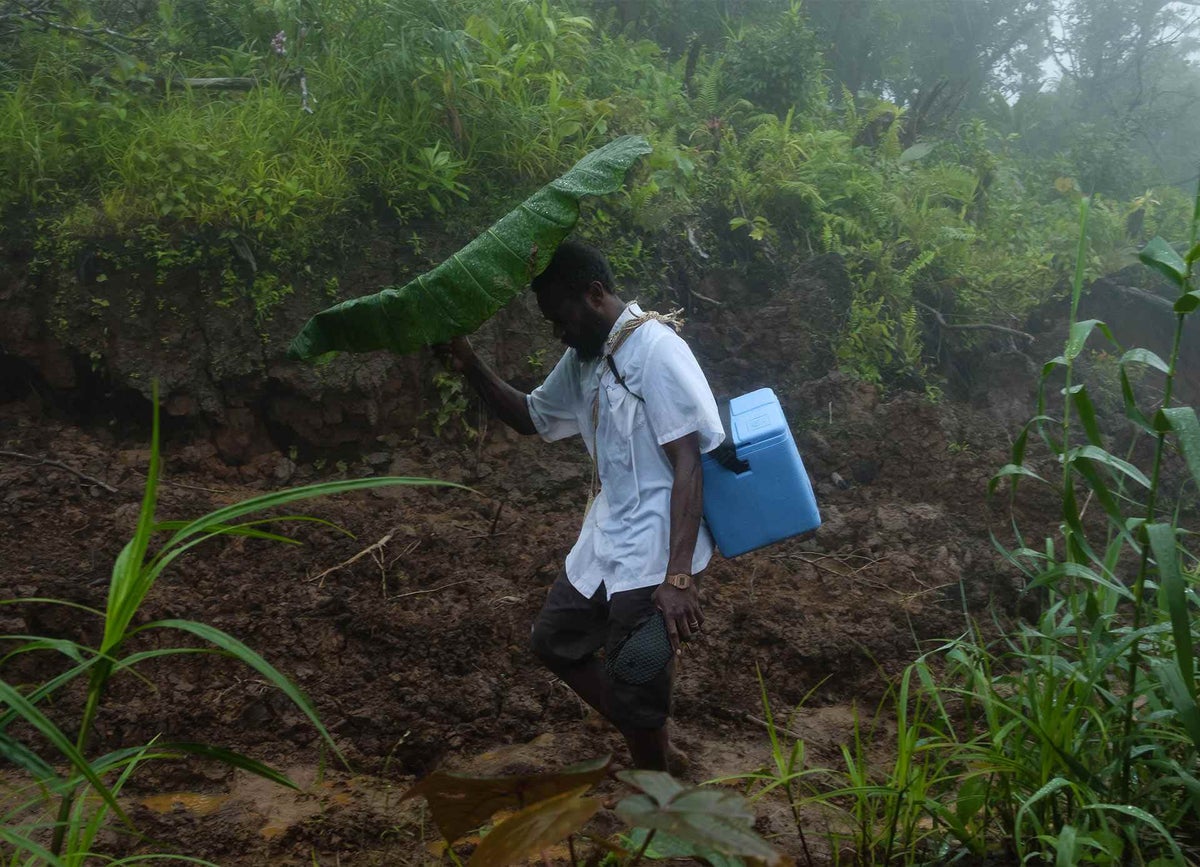
But on top of this, our teams work with governments to help ensure that these essential processes are embedded in the national health system so that the outcomes of this work are sustainable and for the benefit of generations to come.
No child should die from something as common as diarrhea. And at just 6-weeks-old, my son now has protection against one of the most common causes of infant mortality.
We must keep working to ensure that every mother can get their child vaccinated as easily as we can in Australia. Because no matter who they are or where they live, every child deserves to get their jabs, have a cuddle with mum or dad, and travel home safely.
DONATE NOWRelated articles
Stay up-to-date on UNICEF's work in Australia and around the world



